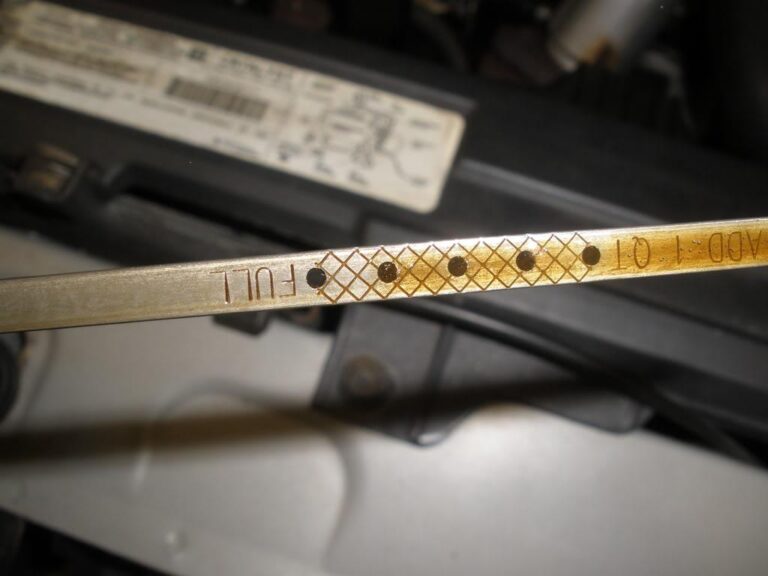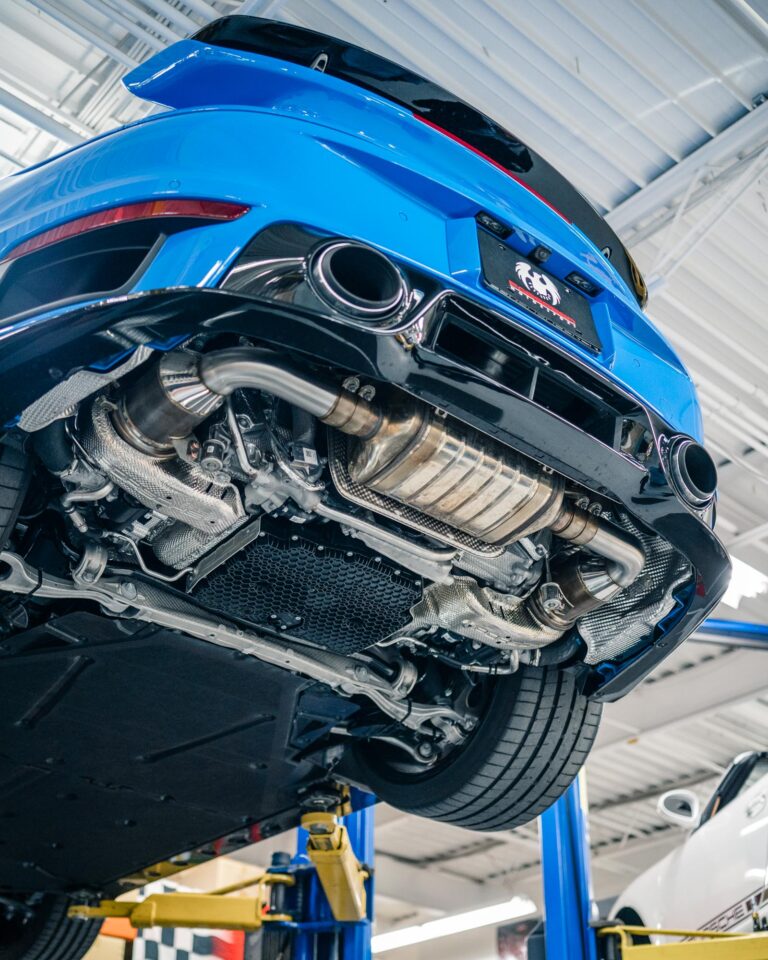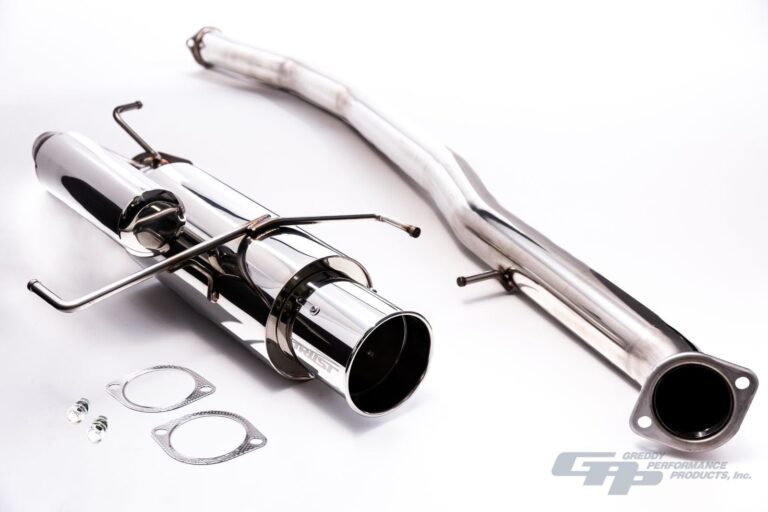Car Really Loud When Accelerating: Unleashing Raw Power and Thunder
The car is abnormally loud when accelerating, indicating a potential issue with the exhaust system or engine components. This noise could be caused by a damaged muffler, exhaust leak, or faulty catalytic converter.
It is crucial to diagnose and address the problem promptly to prevent further damage and ensure the vehicle’s optimal performance.

Credit: www.speedhunters.com
Why Some Cars Are Louder When Accelerating
Some cars can be really loud when accelerating, and there are a few reasons why this may occur. One factor is engine modifications that enhance the sound. These modifications can include less restrictive exhaust systems and performance air intake systems. By allowing the engine to breathe more freely, a less restrictive exhaust system can create a louder and more aggressive sound when accelerating. Similarly, a performance air intake system can increase the amount of air flowing into the engine, resulting in a louder engine noise.
Factors Influencing The Loudness Of A Car When Accelerating
Factors influencing the loudness of a car when accelerating include engine size and type, exhaust system design, turbochargers and superchargers, and catalytic converters.
Engine size and type play a significant role in determining how loud a car is when accelerating. Larger engines generally produce more noise, especially if they have a high-displacement or a performance-oriented design.
Exhaust system design also affects the loudness of a car. Systems with larger diameter pipes or fewer mufflers tend to produce a louder sound. Additionally, the design of the exhaust manifold can further amplify the noise.
Turbochargers and superchargers can increase the volume of a car’s engine noise. These devices provide additional air and fuel to the engine, resulting in more power and a louder sound during acceleration.
Catalytic converters, although important for reducing emissions, can slightly dampen the noise produced by the engine. However, the effect is generally minimal.
Modifying Your Car To Make It Louder When Accelerating
Modifying your car’s exhaust system can significantly increase the loudness when accelerating. Upgrading to a performance exhaust system can enhance the engine’s sound, creating a more aggressive and roaring experience. Additionally, installing a performance air intake can improve air flow to the engine, resulting in a deeper and more powerful sound. Another option is adding a blow-off valve, which releases excess pressure from the turbocharger, producing a distinctive sound when the throttle is let off. Lastly, tuning the engine for performance can also contribute to a louder acceleration sound.
Legal Considerations For Modifying Car Noise Levels
Modifying the noise levels of a car can have legal consequences, as there are regulations in place at both the municipal and federal levels. Municipal noise regulations vary from city to city, with specific limits for noise emissions. Violating these regulations can result in fines or even the impounding of the vehicle. On a federal level, the Environmental Protection Agency (EPA) sets specific noise standards for vehicles, including limits on exhaust system noise. These noise limits aim to ensure that vehicles do not exceed certain noise levels while operating. Therefore, it is essential for car owners to be aware of these legal considerations before making any modifications to their car’s noise levels. Compliance with these regulations will help avoid legal issues and ensure a quieter and more enjoyable driving experience.
Risks Of Modifying A Car’s Sound
Modifying the sound of a car can be enticing for car enthusiasts, but it comes with certain risks. One major concern is voiding the warranty on the vehicle. Manufacturers often prohibit any alterations that may impact the performance or safety of the car, including changes to the exhaust system.
This type of modification can also have a negative impact on engine performance. Altering the exhaust system can disrupt the flow of exhaust gases, potentially causing a decrease in horsepower and torque.
Another consequence to consider is the increased risk of noise pollution fines. Laws regarding vehicle noise levels vary by jurisdiction, but if the modified sound exceeds legal limits, it can result in fines and potential legal issues.
| Risks of Modifying a Car’s Sound |
|---|
| Voiding warranty |
| Potential negative impact on engine performance |
| Increased risk of noise pollution fines |
The Psychology Behind The Thrill Of A Loud Car
Have you ever noticed how some people just love the sound of a loud car? There is a psychological aspect to this preference that goes beyond simple aesthetics. It’s about associating loudness with power and performance. Loud cars are often seen as more impressive, more dominant, and more powerful than their quieter counterparts. This perception stems from evolutionary factors that have shaped our brains throughout history. In our primitive days, loud sounds signaled danger, alerting us to potential threats. This primal instinct still influences our perception today, as we subconsciously associate loudness with strength and superiority. Whether it’s the roar of an engine or the screech of tires, the thrill of a loud car taps into our inherent need for excitement and adventure. So, the next time you hear a car revving its engine, remember that there’s more to it than just noise – it’s the psychology of power and performance.
Tips For Enjoying The Raw Power And Thunder Safely
When your car is really loud when accelerating, it can be an exhilarating experience. Enjoying the raw power and thunder of your vehicle is a thrill like no other. However, it’s important to keep in mind the safety and regulations surrounding excessive noise.
Residential areas have noise regulations in place to ensure the well-being and peacefulness of the community. It’s crucial to respect these regulations and avoid creating unnecessary noise disturbances. Be mindful of the timing and location of your fast drives to minimize disruptions.
If you find the loud noise uncomfortable or bothersome, consider investing in noise-canceling technology. This technology can help reduce the noise levels inside your car, providing a more comfortable driving experience.
Remember, you can enjoy the power and thunder of your car’s acceleration while still being considerate of others. Respect noise regulations and explore options like noise-canceling technology for a more enjoyable and peaceful driving experience.
Frequently Asked Questions Of Car Really Loud When Accelerating
Why Does My Car Sound Louder Than Usual When I Accelerate?
Your car may sound louder than usual when you accelerate due to a potential issue with the exhaust system, such as a damaged muffler or a hole in the exhaust pipe. It could also be caused by an issue with the engine, such as a problem with the exhaust manifold or a malfunctioning catalytic converter.
Proper diagnostics by a qualified technician can help identify and resolve the problem.
Why Does My Car Sound Like A Lawn Mower When Accelerating?
A car that sounds like a lawn mower when accelerating may be due to an issue with the exhaust system or a problem with the engine. It is best to have a mechanic inspect your car to determine the exact cause of the noise.
Why Is My Car Really Loud When Accelerating?
When your car is making loud noises during acceleration, it could indicate a problem with the exhaust system, such as a leak or a damaged muffler. It is important to have it checked by a mechanic to prevent any further damage and ensure your safety on the road.
What Could Be Causing The Loud Noise When I Accelerate?
There are several possible reasons for a loud noise when accelerating. It could be due to a faulty exhaust system, especially if you hear a rumbling or roaring sound. Another possible cause could be a worn-out or damaged engine belt.
Getting a professional inspection can help diagnose the exact issue and recommend necessary repairs.
Conclusion
To sum up, if you’ve noticed that your car is excessively loud when accelerating, there are several potential causes to consider. From issues with the exhaust system to engine problems, it is crucial to address this noise promptly for both your safety and the vehicle’s well-being.
By seeking professional help and regular maintenance, you can resolve the issue and enjoy a quieter and smoother ride on the roads. Remember, proper car care leads to enhanced performance and longevity.







